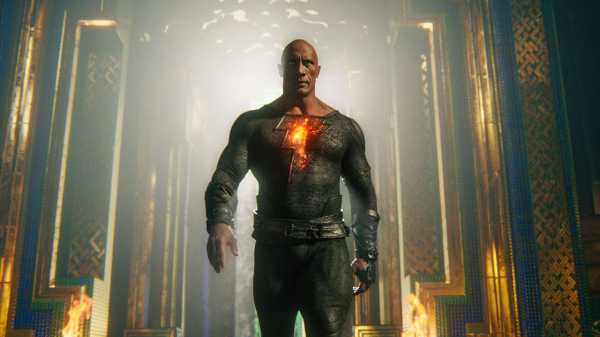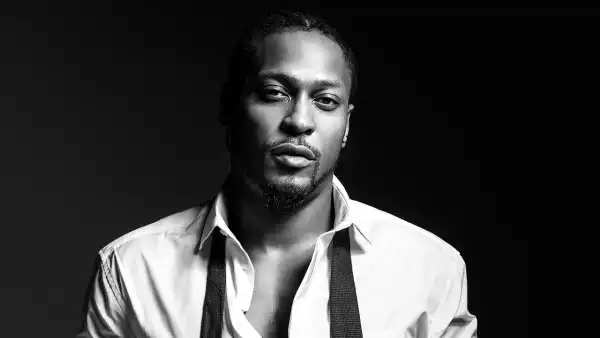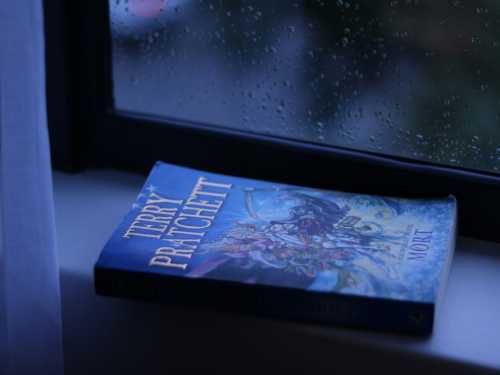
There’s nothing so wrong with “Black Adam” that it should be avoided, but nothing—besides the appealing presence of Dwayne Johnson—that makes it worth rushing out to see. The movie’s many small flaws—and even its few small virtues—arise from its one big problem, namely, its positioning in the DC corporate-cinematic empire. It isn’t worse than many of the big-budget C.G.I. superhero spectacles that have more or less taken over studio filmmaking, but it accumulates the genre’s—and the business’s—bad habits into a single two-hour-plus package, and only hints at the format’s occasional pleasures. “Black Adam” feels like a place-filler for a movie that’s remaining to be made, but, in its bare and shrugged-off sufficiency, it does one positive thing that, if nothing else, at least accounts for its success: for all the churning action and elaborately jerry-rigged plot, there’s little to distract from the movie’s pedestal-like display of Johnson, its real-life superhero.
It begins with an immense backstory of mumbo-jumbo, set in 2600 B.C.E., in a fictitious Middle Eastern or North African land called Kahndaq, where a tyrant named Ahk-Ton (Marwan Kenzari) enslaves his subjects to dig for a mineral called Eternium with which he’ll forge a superpowered crown. One young subject, however, rebels and exhorts his countrymen to revolt; he is endowed with his own superheroic power that’s summoned with the word “shazam,” and, in the resulting melee, Akh-Ton is killed and his palace is blown to rubble. Flash forward to present-day Kahndaq: it’s occupied by a paramilitary crime ring called Intergang, and a trio of dissidents led by an archeologist named Adrianna (Sarah Shahi), and helped by her teen-age son, Amon (Bodhi Sabongui), are searching, among remote subterranean ruins, for the crown in the hope of its aiding their resistance. When Intergang follows and attacks them there, she summons (“Shazam!”) the hero of 2600 B.C.E., Teth-Adam (Dwayne Johnson), from his four thousand-plus of years in an underground tomb. He emerges and lays waste to the assailants.
But this seemingly invulnerable liberator, who catches R.P.G.s and hurls blue thunderbolts, is viewed with suspicion by the American agent Amanda Waller (Viola Davis, reprising this role from the two recent Suicide Squad movies). In order to stop him, she unites the so-called Justice Society—Carter Hall, a.k.a. Hawkman (Aldis Hodge), who’s endowed with wings and a beak; Kent Nelson, a.k.a. Doctor Fate (Pierce Brosnan), who, by means of his golden helmet, can see the future; Maxine Hunkel, a.k.a. Cyclone (Quintessa Swindell), who swirls up devastating green windstorms; and Al Rothstein, a.k.a. Atom Smasher (Noah Centineo), who can expand to the size of a city walkup, or taller. (Al’s uncle gets a seconds-long cameo, and it’s one of the movie’s few highlights: Henry Winkler.)
That’s where the movie’s philosophical dimension comes in. Teth-Adam is an angry man, still seething over what happened in ancient Kahndaq, and his mores are atavistic, with no compunctions about the use of violence, the practice of killing, the collateral damage of mass destruction. (He also sees a TV set for the first time—which, with primeval wisdom, he blasts to smithereens.) But the Justice Society protests: they believe, as Hawkman says, in “due process,” and they warn him to lay off the “extrajudicial killings.” Try as they might, they can’t rein the invulnerable fighter in by force, but, when he himself recognizes the danger posed by his rage, he allows himself to be reëntombed—and gagged—in order not to utter the magic word again. Then a brutal revenant from early Kahndaq seeks—with the aid of smoldering, ancient zombies—to restore Akh-Ton’s dynasty, and the Justice Society needs Teth-Adam back.
In contrast to the 2019 movie “Shazam!,” which treats its premise with an apt silliness that yields an unusually amiable superhero comedy, “Black Adam,” sparked by its historical backstory and its enduring implications in current-day political conflict, has a thudding earnestness that its specifics belie. Thus, Davis and Hodge offer performances of grand severity (Davis’s diction alone could smash concrete) that belong to the Shakespearean movie in which neither has yet been cast. Brosnan coasts charmingly in a role that offers him nothing but elegant manners; Swindell and Centineo are part of a Y.A. romance that’s itself entombed in anticipation of a sequel. As for Johnson, he has the star power and the physical prowess to hold attention with minimal fuss, but the role itself, with its tragic implications and mighty gestures, is rote and empty. (I’m still waiting for Johnson to find his way into another movie that offers him as exuberant a showcase as did “Pain and Gain”; his talent is far greater than most of his vehicles, no pun intended.) Teth-Adam’s struggles with himself, the weight of his memories, the rise of self-awareness, even the simple fact of his encounters with a new world (trivialized in a single line of dialogue) turn the hero into a mere plaything of the rickety plot, which appears to add its byways as part of a just-so story crafted to yield a franchise.
If the wry details that glitter on the movie’s surface—such as Amon’s effort to teach Teth-Adam the proper use of a catchphrase, or Teth-Adam’s introduction to the concept of sarcasm—stand out in memory, it’s because the substance that it attaches to dries up and blows away like the ashes of half the universe at the end of “Avengers: Infinity War.” What “Black Adam” lacks is the sense of a point of view; even the Russo brothers’ armchair-army bluster in Marvel epics suggests a greater sense of personality, of personal commitment and aesthetic attitude, than the synthetic enormity of “Black Adam.” Jaume Collet-Serra, the movie’s director, comes off as a skillful coördinator whose connection to the very essence of superheroes, their fantastic natures and outsized powers, seems merely technical, a problem to be solved rather than a realm of limitless possibilities.
Those limitless possibilities are part of the reason that superhero movies aptly wore out their critical welcomes very quickly. As ultra-high-budget tentpole productions meant for international consumption, these films have production demands that tend to dominate the imagination of direction, with only a few notable exceptions, such as “Ant-Man,” “Black Panther,” and “Man of Steel” (or, for that matter, brief exceptional interludes within unexceptional films, such as “Doctor Strange”). There’s something morally deadening and aesthetically depressing about the bottomless toy chest of C.G.I. being reduced to the toolbox of cinematic bureaucracy.
It’s no less numbing to find material meant for children retconned for adults—and, in the process, for most of the naïve delight to be leached out, and for any serious concerns to be shoehorned in and then waved away with dazzle and noise. With no discernible artistic perspective, “Black Adam” offers a moral realm that draws no lines, a personal one of simplistic stakes, a political one that suggests any interpretation, an audiovisual one that rehashes long-familiar tropes and repackages overused devices for a commercial experiment that might as well wear its import as its title. When I was in Paris in 1983, Jerry Lewis—yes, they really did love him there—had a new movie in theatres. In the U.S., it was originally titled “Smorgasbord” (and later reissued as “Cracking Up”); in France, they adored him so that they released it as “T’es fou Jerry”—“You’re Crazy, Jerry.” “Black Adam” could be retitled “You’re a Superhero, Dwayne”—it’s the marketing team’s PowerPoint presentation extended to feature length. ♦
Sourse: newyorker.com






